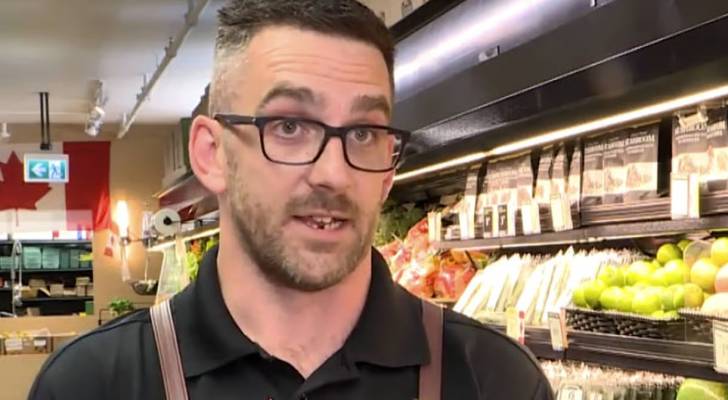
A Victoria, BC-based grocer is sending a strong message amid U.S. President Donald Trump’s trade war with Canada — going 117-plus days without selling any U.S.-grown fruits or vegetables, according to Global News.
“We’re, you know, just really trying to promote the local farms,” Garth Green, general manager of Urban Grocer, told the news outlet. “It’s been very, very good for us. The customers have been very appreciative of it.”
Green says the store made the bold move to go cold turkey on American produce after Trump first imposed tariffs on Canadian goods in March.
“There’s people every day almost that come in here and say, ‘You know, we hear what you’re doing and we love it and we’d love to join on board with you and really shop here,’” Green said.
Despite the success of the project, Green says it has also brought challenges.
Supply challenges
Green says the grocer has taken a “Canada-first” approach to sourcing its products, but the reality is not everything can be found in Canada at all times.
At one point, Green thought they could only get cauliflower from the U.S., until he found out it was cauliflower season in Holland.
“So we reached out to a few suppliers and said, ‘Hey, can you get Holland cauliflower for us?’” he recalled. “We ended up finding some, brought it in, and you know it’s a little bit more expensive to bring in because you’re flying it in. But we just took a [lower] margin, [sold] it at a regular price and [were] able to give the customer something that they can buy until B.C. cauliflower was available.”
Supply is also an issue, and Green admits they’ve had to buy extra to maintain stock.
It’s all part of a cross-country trend of Canadian consumers avoiding U.S. products.
Canadians reject American-made goods
Sylvain Charlebois, a food researcher at Dalhousie University, says what’s happening at Urban Grocer reflects the way Canadians have been spurning U.S. goods lately.
“The boycott is absolutely real,” he told Global News.
A report by marketing research firm NielsonIQ shows, amid trade tensions, nearly half (45%) of Canadian consumers are avoiding U.S. products or opting for Canadian-made alternatives.
“What’s really interesting is that people haven’t really boycotted chains like Walmart or Costco, but they’re boycotting products,” Charlebois said.
Canada has traditionally been one of the biggest buyers of American agricultural goods. According to the U.S. Department of Agriculture, in 2023, Canada made up 16.3% of U.S. agricultural exports.
It’s not known how long Canadians will maintain a boycott mindset, but Urban Grocer is leaning into the trend.
“Across the store, we are working towards trying to go all Canadian if possible,” Green said. “It’s going to be a lot harder, but we’ve started the process and started to weed out some of the suppliers that we don’t need.”
Sources
1. Global News: B.C. grocer avoids selling U.S. produce for 117 days in what expert calls a ‘real’ boycott, by Amy Judd & Kylie Stanton (Jul 14, 2025)
2. NielsonIQ: Made in Canada: The Retail Ripple of Patriotic Sentiment (Jun 9, 2025)
3. U.S. Department of Agriculture: USMCA, Canada, & Mexico – Canada: Trade & FDI (Feb 5, 2025)
This article provides information only and should not be construed as advice. It is provided without warranty of any kind.